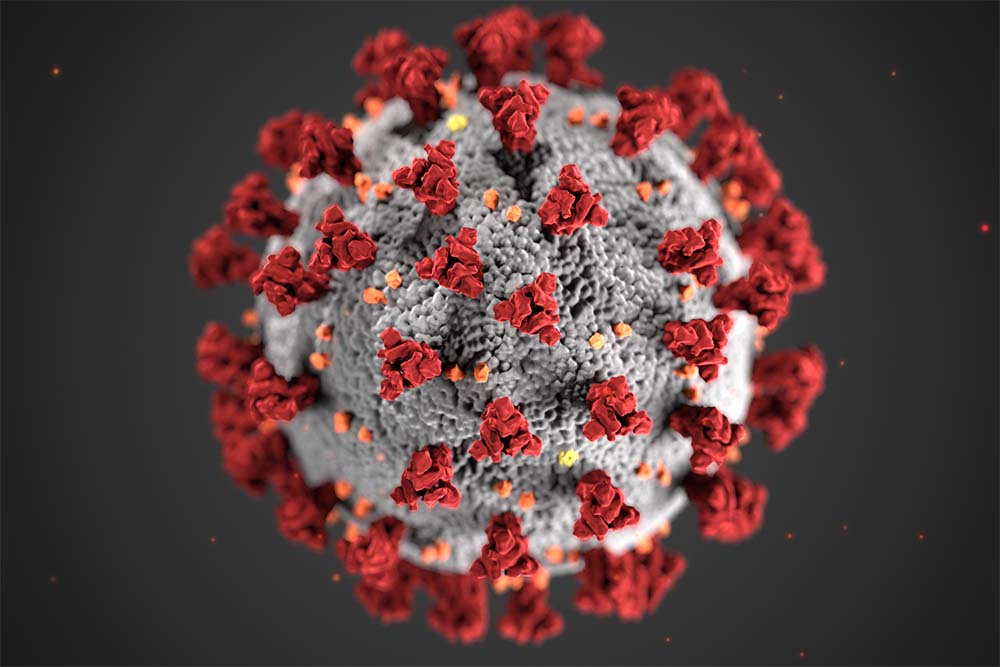
- Details
- By Levi Rickert
At the outset of the Covid-19 pandemic, most of us did not realize the long journey we had just embarked on. I remember conversations with tribal leaders who expressed their uncertainty about how long to keep tribal offices and casinos closed. There is no question that the pandemic has had a devastating impact in Indian Country. There have been too many cases and far too many deaths.
After one year, there seems to be recovery on the horizon. However, we are not at a point to take a victory lap, we know it is still necessary to take proper precautions to stop the spread of the deadly virus.
To learn more about your Covid-19 experience as an Indigenous person, Native News Online, in collaboration with Northwestern University, has developed and launched a survey to give you an opportunity to have your voice heard, which is so often ignored by mainstream media sources.
"As a journalist, I get so frustrated when I look at reports and see no categories for Native American and Indigenous people. We are part of the invisible 'other.' This survey attempts to address that invisibility and find out where Native people are getting their information about the Covid 19 vaccine and how they feel about getting the shot(s). This is not a Native or non-Native issue,” said Patty Loew (Bad River Band of Lake Superior Ojibwe), a professor at Northwestern's Medill School of Journalism and director of the school's Center for Native American & Indigenous Research (CNAIR). “Public health affects us all."
Stephen Hersh, a lecturer on the faculty at the Medill School of Journalism with more than three decades of survey research experience, took the lead in the survey’s design. Hersh said one thing that makes this survey unique is that it asked a lot of questions about where Native Americans are getting their news and information, in addition to the questions about healthcare.
“Communication is an important part of the picture. Our health care system has not always given Indigenous people equal care—to say the least—and that is especially a problem now that we’re in the middle of a pandemic that has hit Native people especially hard, with deaths, illness, and lockdowns,” Hersh said. “Survey research is often able to break out how Black, Latinx, and Asian-American people feel about issues, but it’s rare for a survey to include enough Indigenous people to be able to report on what they in particular have to say.”
As one of America’s most read Native American news sources, Native News Online feels strongly that American Indians and Alaska Natives should have an opportunity to give voice to the topics and issues that are important to them. The survey, launched last week, was shared with our newsletter subscribers via email and now we are seeking input from our everyday readers and social media followers.
We wish to learn about how you have dealt with the pandemic and your attitude towards the vaccinations currently being delivered and administered across the country.
Realizing that many of our readers are non-Native, we in no way attempt to discriminate by excluding you. However, we feel it is important to offer a snapshot of Native Americans’ viewpoints as we go about gathering this data and information.
The results of our survey will be compiled and reported in future Native News Online articles as well as white papers and other research studies by Northwestern.
Please take time to have your voice heard. The survey can be filled out in less than 20 minutes by following this link.
Native News Online appreciates your ongoing readership.
More Stories Like This
Native News Weekly (August 25, 2024): D.C. BriefsNavajo Nation Mourns the Passing of Former Vice President Rex Lee Jim
Deb Haaland Earns Endorsement From Communications Workers of America Local 7076
University Soccer Standout Leads by Example
Two Native Americans Named to Democratic Congressional Campaign Committee's“Red to Blue” Program
Help us defend tribal sovereignty.
At Native News Online, our mission is rooted in telling the stories that strengthen sovereignty and uplift Indigenous voices — not just at year’s end, but every single day.
Because of your generosity last year, we were able to keep our reporters on the ground in tribal communities, at national gatherings and in the halls of Congress — covering the issues that matter most to Indian Country: sovereignty, culture, education, health and economic opportunity.
That support sustained us through a tough year in 2025. Now, as we look to the year ahead, we need your help right now to ensure warrior journalism remains strong — reporting that defends tribal sovereignty, amplifies Native truth, and holds power accountable.
 The stakes couldn't be higher. Your support keeps Native voices heard, Native stories told and Native sovereignty defended.
The stakes couldn't be higher. Your support keeps Native voices heard, Native stories told and Native sovereignty defended.
Stand with Warrior Journalism today.
Levi Rickert (Potawatomi), Editor & Publisher

